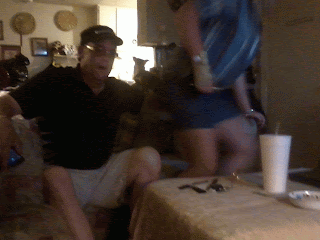
From a psychologist’s perspective, a fear of clowns often starts in childhood; there’s even an entry in the psychologists’ bible, the Diagnostic and Statistical Manual of Mental Disorders or DSM, for a fear of clowns, although it’s under the umbrella category of a pediatric phobia of costumed characters (sports mascots, Mickey Mouse). “It starts normally in children about the age of two, when they get anxiety about being around strangers, too. At that age, children’s minds are still developing, there’s a little bit of a blend and they’re not always able to separate fantasy from reality,” explains Dr. Brenda Wiederhold, a veteran psychologist who runs a phobia and anxiety treatment center in San Diego that uses virtual reality to treat clients.
Most people, she says, grow out of the fear, but not everyone—perhaps as much as 2 percent of the adult population will have a fear of clowns. Adult clown phobics are unsettled by the clown’s face-paint and the inability to read genuine emotion on a clown’s face, as well as the perception that clowns are able to engage in manic behavior, often without consequences.
But really, what a clown fear comes down to, what it’s always come down to, is the person under the make-up. Ringling’s Kiser agreed.
“I think we have all experienced wonderful clowns, but we’ve also all experienced clowns who in their youth or lack of training, they don’t realize it, but they go on the attack,” Kiser says, explaining that they can become too aggressive in trying to make someone laugh. “One of the things that we stress is that you have to know how to judge and respect people’s space.” Clowning, he says, is about communicating, not concealing; good clown make-up is reflective of the individual’s emotions, not a mask to hide behind—making them actually innocent and not scary.
But have bad, sad, troubled clowns done too much damage? There are two different, conflicting visions of the clown’s future.
Stott, for one, sees clowning continuing on its dark path. “I think we’ll find that the kind of dark carnival, scary clown will be the dominant mode, that that figure will continue to persist in many different ways,” he says, pointing to characters like Krusty the Clown on The Simpsons, who’s jaded but funny, or Heath Ledger’s version of The Joker in the Batman reboot, who is a terrifying force of unpredictable anarchy. “In many respects, it’s not an inversion of what we’re used to seeing, it’s just teasing out and amplifying those traits we’ve been seeing for a very long time.” Other writers have suggested that the scary clown as a dependable monster under the bed is almost “nostalgically fearful,” already bankrupted by overuse.
But there’s evidence that, despite the claims of the University of Sheffield study, kids actually do like clowns: Some studies have shown that real clowns have a beneficial affect on the health outcomes of sick children. The January 2013 issue of the Journal of Health Psychology published an Italian study that found that, in a randomized controlled trial, the presence of a therapy clown reduced pre-operative anxiety in children booked for minor surgery. Another Italian study, carried out in 2008 and published in the December 2011 issue of the Natural Medicine Journal found that children hospitalized for respiratory illnesses got better faster after playing with therapeutic clowns.
And Kiser, of course, doesn’t see clowning diminishing in the slightest. But good clowns are always in shortage, and it’s good clowns who keep the art alive. “If the clown is truly a warm and sympathetic and funny heart, inside of a person who is working hard to let that clown out… I think those battles [with clown fears] are so winnable,” he says. “It’s not about attacking, it’s about loving. It’s about approaching from a place of loving and joy and that when you really look at it, you see, that’s it really genuine, it’s not fake.”
Thank you for reading We are Family Becerra...Hunt....Trevino

.jpg)
.jpg)
.jpg)











